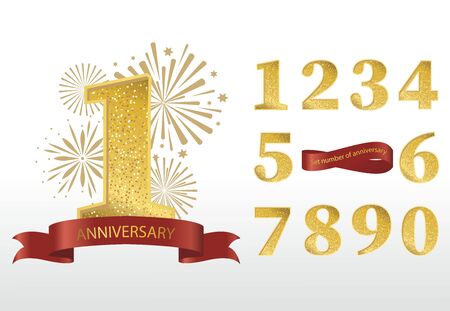1. Understanding Master Numbers in Numerology
In the realm of numerology, certain numbers hold a particular resonance, standing apart for their depth and significance—these are known as the Master Numbers: 11, 22, and 33. Each carries its own unique vibration and is believed to influence personality traits and life paths in profound ways. The concept of Master Numbers has long fascinated scholars and enthusiasts alike, especially within the context of British esotericism. Throughout history, these numbers have been woven into the fabric of British cultural beliefs, often appearing in folklore, mystical societies, and even architectural symbolism found across the British Isles. From the ancient Druids to more contemporary spiritual circles, Master Numbers have symbolised intuition, vision, and spiritual growth. Their enduring presence in British traditions highlights the nations subtle yet enduring fascination with numerological wisdom, setting a foundation for understanding how these powerful numbers may continue to shape distinct aspects of the British character.
2. Master Number 11: The Visionary in British Society
Master Number 11 is often regarded as the most intuitive and spiritually aware of the master numbers. Those influenced by this number are known for their heightened sensitivity, visionary thinking, and deep inspiration. In the context of British society, these qualities manifest in ways both subtle and profound, aligning with the nation’s long-standing appreciation for innovation, quiet resilience, and understated charisma.
Individuals carrying the energy of 11 frequently find themselves attuned to the unspoken undercurrents of social interactions—a trait that resonates well with Britain’s famed “stiff upper lip” culture, where emotions are often kept beneath the surface. The intuitive abilities associated with 11 can make such individuals especially adept at reading between the lines, sensing societal shifts, and contributing innovative ideas that gently challenge tradition while honouring heritage.
The Unique Attributes of Master Number 11
| Trait | Description | British Cultural Reflection |
|---|---|---|
| Intuition | A natural ability to sense what is not openly expressed | Subtle awareness of social cues; excelling in diplomacy and mediation |
| Inspiration | Capacity to motivate others with visionary ideas | Influencing movements in arts, literature, and social reform—echoes of figures like William Blake or Emmeline Pankhurst |
| Sensitivity | Heightened emotional receptivity and empathy | Nurturing community spirit; supporting causes that address inequality and promote wellbeing |
The Role of 11s Within British Social Norms
Within a society that values politeness, reserve, and measured progress, those influenced by Master Number 11 can become quiet revolutionaries. Their visionary nature allows them to see possibilities beyond conventional boundaries, yet their sensitivity ensures they introduce change thoughtfully—always mindful of collective values. This delicate balance enables them to foster trust and inspire others without appearing radical or disruptive.
Manifestation in Daily Life
You may notice an 11 at work in local charities, creative industries, or grassroots campaigns—spaces where inspiration meets practical action. In professional settings, they often serve as mediators or innovators, offering solutions that bridge tradition with modernity. Ultimately, Master Number 11 imbues its bearers with a quiet power: the ability to guide society forward with vision grounded in empathy and intuition.

3. Master Number 22: The Master Builder and British Pragmatism
Within the realm of numerology, the master number 22 is often referred to as “the Master Builder.” This powerful vibration is intimately associated with practical achievement, visionary leadership, and a steady, methodical approach to life’s challenges. In the context of British personality traits, the influence of the 22 resonates deeply with national values such as pragmatism, orderliness, and respect for tradition.
The Essence of 22: Turning Vision into Reality
Unlike the more idealistic energy of master number 11, those touched by the master number 22 possess an exceptional ability to transform ambitious visions into concrete results. This aligns well with the British reputation for industriousness and reliability—qualities that have underpinned much of the nation’s history, from its architectural marvels to its enduring institutions.
Leadership Rooted in Structure
The energy of 22 carries a natural aptitude for leadership, but it is expressed through methodical planning and careful execution rather than flamboyant displays. The British tendency towards understated authority and collective responsibility finds its reflection here; leaders influenced by this master number often prefer to guide quietly yet effectively, ensuring that every detail is considered and every process follows a logical sequence.
Tradition Meets Innovation
Master number 22 also embodies a respectful balance between honouring tradition and pursuing progress. Just as many British customs are cherished while still allowing room for innovation, individuals resonating with this number strive to build upon established foundations. They are neither reckless nor stagnant—instead, they are bridge-builders who connect past wisdom with future potential.
Ultimately, in the tapestry of British culture, the energy of master number 22 manifests as a steadying force: one that values order, cherishes structure, and champions practical achievement. This uniquely complements the British ethos, where pragmatic solutions and time-honoured traditions continue to shape both individual personalities and the broader national character.
4. Master Number 33: The Compassionate Healer and Community Spirit
Master Number 33, often hailed as the “Master Teacher,” embodies the highest vibration of altruism, compassion, and service to others. When we consider how this number shapes British personality traits, we see a distinct alignment with the nation’s longstanding traditions of community service, charity, and collective responsibility. In many ways, those influenced by the energy of 33 naturally gravitate towards nurturing roles—be it through volunteering, charitable endeavours, or simply offering a helping hand in their local community.
The classic British value of “mucking in” — where everyone contributes for the common good — finds deep resonance with the essence of 33. There is an inherent understanding among 33s that society thrives when individuals look beyond themselves to support their neighbours. This sense of duty is woven into the fabric of British life, visible in everything from village fetes raising funds for local causes to nationwide campaigns like Children in Need or Comic Relief.
Key Traits of Master Number 33 and Their British Manifestations
| Trait | Manifestation in British Culture |
|---|---|
| Altruism | Charity shops on every high street; strong tradition of volunteering |
| Nurturing | Neighbourhood watch schemes; emphasis on community care services |
| Sacrifice | Wartime spirit: “Keep Calm and Carry On” attitude towards collective hardship |
| Community Spirit | Street parties during national events; local fundraising initiatives |
| Empathy | Support for NHS workers and carers; inclusivity in schools and workplaces |
The influence of 33 can be seen in Britain’s approach to social welfare and public health as well. The founding of the NHS — providing care based on need rather than wealth — echoes the selfless principles that define this master number. Moreover, British people are often proud of their role in global humanitarian efforts, whether through sending aid abroad or welcoming refugees. These actions reflect both a deep-seated sense of fairness and an instinctive drive to alleviate suffering wherever possible.
The nurturing energy associated with 33 does not mean weakness or naivety; rather, it speaks to a quiet strength that persists even in adversity. Like the sturdy oak trees dotting the English countryside, those influenced by this master number offer shelter and support to others while standing firmly rooted in their values. In modern Britain, where challenges such as social isolation and inequality persist, individuals guided by 33 remain beacons of hope—encouraging unity and reminding communities that compassion is not just an ideal but a lived tradition.
5. Subtle Differences Under the Union Jack
When we consider the influence of Master Numbers—11, 22, and 33—on the British personality, it is vital to appreciate how these energies gently weave themselves through the fabric of daily life under the Union Jack. Each number imparts its own distinct flavour, yet together they contribute to a uniquely British tapestry marked by both individuality and collective harmony.
Within the Family Hearth
The energy of 11 often emerges in British family life as intuition and quiet sensitivity. Those touched by this number may be the peacemakers at home, intuitively understanding when to offer a cup of tea or a comforting word during a rainy afternoon. Meanwhile, the 22 carries a practical and constructive streak; family members with this energy are often the steady hands behind organising family gatherings or ensuring traditions endure through generations. The rare 33 expresses itself as unconditional support—a gentle guiding presence that keeps kin connected, often acting as the heart of the household, embodying patience and compassion reminiscent of Britain’s nurturing spirit.
Shaping Professional Endeavours
In the workplace, these master numbers colour British professional life in subtle but significant ways. Elevens bring innovation and visionary ideas into boardrooms and creative studios alike. They are often those colleagues who quietly champion new perspectives while respecting established protocols. The 22s, sometimes called ‘Master Builders’, excel at translating vision into action; their practical approach helps anchor ambitious projects, ensuring that great British institutions stand the test of time. The influence of 33 fosters teamwork and ethical leadership: individuals attuned to this frequency often become trusted mentors or managers who inspire loyalty and foster inclusivity across all rungs of the corporate ladder.
Public Life and Social Harmony
On a broader stage, these master numbers further shape public attitudes and social interactions across Britain. Eleven’s subtle awareness can encourage tolerance and empathy within diverse communities, mirroring Britain’s long-standing reputation for diplomacy and fair play. Twenty-twos demonstrate steadfast commitment to causes—often seen in civic leaders dedicated to building better neighbourhoods or upholding cherished institutions like the NHS. The compassionate vibration of 33 shines in voluntary work and public service, where selfless acts sustain the nation’s sense of unity through times both ordinary and extraordinary.
Together Yet Distinct
Though each master number brings its own strengths, their interplay ensures that British society remains both resilient and adaptable. Whether fostering warmth around the family table, stability at work, or goodwill on public streets, these energies blend seamlessly—each contributing a unique note to Britain’s collective character while upholding values cherished under the Union Jack.
6. A Traditional Reflection: Master Numbers in Everyday British Life
In the gentle ebb and flow of British society, the subtle power of Master Numbers—11, 22, and 33—continues to shape the character and aspirations of many. These numbers, steeped in numerological tradition, find their expression in the daily lives of individuals and communities alike, echoing through customs, social attitudes, and long-standing values.
Enduring Influence on Attitudes
The number 11, often associated with intuition and visionary thinking, can be seen in the understated British ability to sense underlying currents within social interactions. The British talent for “reading between the lines” and valuing quiet wisdom may well be influenced by this Master Number’s energy. In public discourse, those guided by 11 tend to approach discussions with a respectful subtlety, reflecting an age-old preference for diplomacy over confrontation—a hallmark of traditional British etiquette.
Relationships Shaped by Master Numbers
Master Number 22 brings with it a grounded practicality and a drive for tangible achievement. This manifests within British society as a deep-seated respect for building institutions—whether that be the NHS, local councils, or cherished charities like the RSPCA. Relationships among Britons often reflect this energy: loyalty is prized, commitments are honoured, and there is a collective focus on steady progress rather than dramatic change. The “stiff upper lip” mentality and community spirit during times of hardship—such as during national events or even simply queuing patiently—exemplify the enduring influence of 22’s constructive force.
Ambitions Anchored in Compassion
The nurturing presence of Master Number 33 emerges in British ambitions that are quietly yet profoundly altruistic. Many are drawn towards vocations centred on service—be it teaching, healthcare, or volunteer work—reflecting a desire to uplift others while maintaining humility. The British tradition of charity shops and local fundraising events further illustrates how compassion is woven into everyday ambition. Here, 33’s guiding light helps foster inclusiveness and a sense of responsibility toward neighbours near and far.
Together, these Master Numbers provide a traditional yet ever-relevant framework that guides personal growth and societal development across Britain. Whether found in moments of silent resolve or acts of collective kindness, their influence resonates quietly but powerfully through the corridors of British life, reminding us that ancient wisdom still has a place at the heart of modern society.


